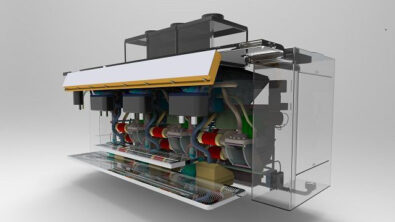How Traceability and Lifecycle Intelligence are Revolutionizing Consumer Experiences

Companies are gradually shifting towards an ‘Experience First’ Product Design Strategy. The first step in creating a great user experience is to create a product that is focused on the needs of the consumers. Companies are recalibrating their approach and optimizing speed, time-to-market, and delivering on customer requirements and experience.
Manufacturers are developing connected products that can be integrated with Mobile Applications to provide users with a seamless experience. Consumers are increasingly engaging with connected devices, from home appliances to fitness, and they are looking for personalized experiences and services. Given this, businesses are increasingly investing in user experience for cross-selling and upselling, improving customer retention, and increasing customer satisfaction.
In this blog post, we’ll explore the benefits of traceability and lifecycle intelligence and how they’re transforming the consumer experience.
What is Traceability?
Traceability involves tracking and tracing products and their components throughout the supply chain. This tool enables companies to identify the origin of their products and ensure they meet regulatory standards. By using technology, companies can track their products as they move from one location to another, providing them with complete visibility into their supply chain. This allows companies to offer ethically sourced and high-quality products to their customers.
Benefits of Traceability
Traceability provides several benefits to companies, including increased supply chain visibility and the ability to manage risks. By tracking their products, companies can identify any issues in their supply chain and take corrective action. Traceability also enables companies to monitor their suppliers and ensure they meet their sustainability and ethical standards.
What is Lifecycle Intelligence?
Lifecycle intelligence involves tracking a product throughout its entire lifecycle, from design and development to disposal or recycling. This tool enables companies to identify opportunities for improvement and optimize their processes to reduce waste and increase efficiency. By tracking a product’s lifecycle, companies can also gain insights into the environmental impact of their products and take steps to reduce it.
Benefits of Lifecycle Intelligence
Lifecycle intelligence provides several benefits to companies, including reduced costs and improved sustainability. By monitoring a product’s lifecycle, companies can identify inefficiencies in their processes and take corrective action. This can result in cost savings and increased efficiency. Lifecycle intelligence also enables companies to reduce waste and minimize their environmental impact.
Transforming the Consumer Experience
Traceability and lifecycle intelligence is transforming the consumer experience by providing greater transparency and trust. By providing consumers with information about a product’s origin, production process, and lifecycle, companies can build trust with their customers. Consumers are becoming more aware of the impact their purchasing decisions have on the environment, and they want to make informed choices. By providing this information, companies can offer unique experiences to their customers and differentiate themselves from their competitors.
Manufacturing connected products to enable customer touchpoints and resolve product pain points
Most businesses are now focusing on differentiated user experience rather than differentiated products. They’ve realized that providing consumers with engaging, interactive, and fun experiences can help them remember their brand. Brands are addressing various customer touchpoints such as ease of use, convenience, and improved performance by utilizing low code applications with a cloud backend. In order to customize their user experience, brands provide tailored content that resonates with each consumer.
Top reasons why companies invest in customer experience are:
- Building customer loyalty
- Reducing attrition
- Improving customer retention
Conclusion
Traceability and lifecycle intelligence are transforming the way companies do business and the experiences they offer to their customers. These tools enable companies to improve their supply chain, reduce waste, build customer loyalty and retention, and offer more sustainable and ethical products. They also provide consumers with greater transparency and trust, enabling them to make informed choices about the products they buy. As the market continues to evolve, it’s clear that traceability and lifecycle intelligence will play an increasingly important role in shaping the consumer experience.
Want to learn more about creating unique consumer product experiences with IoT device integration?


